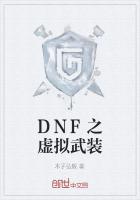Saxon forgave him his tone-deafness. Here was the kind of man she always had known existed. It was for some such man that she had waited. She was twenty-two, and her first marriage offer had come when she was sixteen. The last had occurred only the month before, from the foreman of the washing-room, and he had been good and kind, but not young. But this one beside her--he was strong and kind and good, and YOUNG. She was too young herself not to desire youth. There would have been rest from fancy starch with the foreman, but there would have been no warmth. But this man beside her.... She caught herself on the verge involuntarily of pressing his hand that held hers.
"No, Bert, don't tease he's right," Mary was saying. "We've got to get some sleep. It's fancy starch to-morrow, and all day on our feet."
It came to Saxon with a chill pang that she was surely older than Billy. She stole glances at the smoothness of his face, and the essential boyishness of him, so much desired, shocked her. Of course he would marry some girl years younger than himself, than herself. How old was he? Could it be that he was too young for her? As he seemed to grow insecessible, she was drawn toward him more compellingly. He was so strong, so gentle. She lived over the events of the day. There was no flaw there. He had considered her and Mary, always. And he had torn the program up and danced only with her. Surely he had liked her, or he would not have done it.
She slightly moved her hand in his and felt the harsh contact of his teamster callouses. The sensation was exquisite. He, too, moved his hand, to accommodate the shift of hers, and she waited fearfully. She did not want him to prove like other men, and she could have hated him had he dared to take advantage of that slight movement of her fingers and put his arm around her. He did not, and she flamed toward him. There was fineness in him. He was neither rattle-brained, like Bert, nor coarse like other men she had encountered. For she had had experiences, not nice, and she had been made to suffer by the lack of what was termed chivalry, though she, in turn, lacked that word to describe what she divined and desired.
And he was a prizefighter. The thought of it almost made her gasp. Yet he answered not at all to her conception of a prizefighter. But, then, he wasn't a prizefighter. He had said he was not. She resolved to ask him about it some time if . . . if he took her out again. Yet there was little doubt of that, for when a man danced with one girl a whole day he did not drop her immediately. Almost she hoped that he was a prizefighter. There was a delicious tickle of wickedness about it. Prizefighters were such terrible and mysterious men. In so far as they were out of the ordinary and were not mere common workingmen such as carpenters and laundrymen, they represented romance. Power also they represented. They did not work for bosses, but spectacularly and magnificently, with their own might, grappled with the great world and wrung splendid living from its reluctant hands. Some of them even owned automobiles and traveled with a retinue of trainers and servants. Perhaps it had been only Billy's modesty that made him say he had quit fighting. And yet, there were the callouses on his hands. That showed he had quit.














